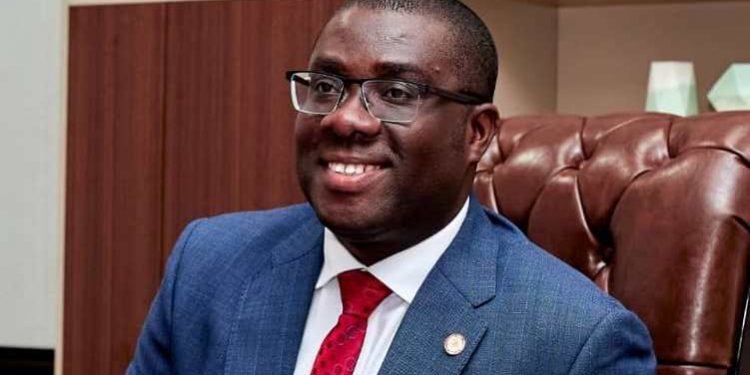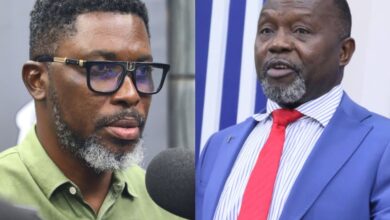Students risk their lives just to eat – Sammi Awuku on Mampong deaf school

On Wednesday, June 18, the Member of Parliament for Akuapem North, Hon. Sammi Awuku, brought urgent attention to Parliament regarding critical infrastructural and curriculum challenges facing the Senior High Technical School for the Deaf in Mampong.
Delivering a passionate statement during parliamentary proceedings, Hon. Awuku painted a troubling picture of the daily risks students endure due to the school’s disjointed infrastructure.
“Mr. Speaker, the school currently operates from two physically separated campuses—North and South,” he revealed. “This setup forces students to cross busy roads several times a day, risking their lives just to access food or attend classes.”
He went on to describe how students are often left stranded and hungry, as the school depends on taxis to shuttle food between campuses—an unreliable system that frequently fails.
“Students depend on taxis to transport food between the campuses. This unreliable system has often resulted in delays, and in some cases, complete failure to deliver meals, thereby affecting student nutrition and concentration.”
To address the problem, Hon. Awuku proposed a centralised campus layout and an on-site dining hall, noting that these measures would significantly improve both safety and the well-being of students.
“An on-site dining hall is recommended to ensure nutrition and eliminate reliance on external logistics,” he said.
“The recommendation for a centralised and accessible learning environment, complete with an on-site dining facility, must be taken up by the Ministry of Education with support from Parliament.”
The MP also turned Parliament’s attention to the curriculum deficiencies that hinder academic progress among deaf students.
“Mr. Speaker, the third issue relates to the inadequacy of the current national curriculum in addressing the needs of deaf learners,” Awuku stated.
He explained that teachers at the school often have to repeat lessons multiple times due to delays in comprehension, a situation made worse by assessment structures that do not reflect the needs of hearing-impaired students.
To bridge the gap, the students themselves made thoughtful proposals, which Awuku shared on the floor:
“The students proposed a comprehensive review of the National Curriculum for Deaf Learners to incorporate:
- Sign language-based instructional materials
- Visual learning tools
- Simplified content structures
- Extended teaching and assessment time.”
He also conveyed additional recommendations including the recruitment and training of more sign language interpreters, the provision of specialised learning aids, and professional development for teachers in deaf education.
In concluding, Hon. Awuku urged Parliament and the Ministry of Education to take the concerns seriously, describing them as essential to ensuring equity in Ghana’s education system.
“These are not luxury demands, Mr. Speaker. They are essential steps toward inclusion, dignity, and quality education for every Ghanaian child, regardless of ability.”




